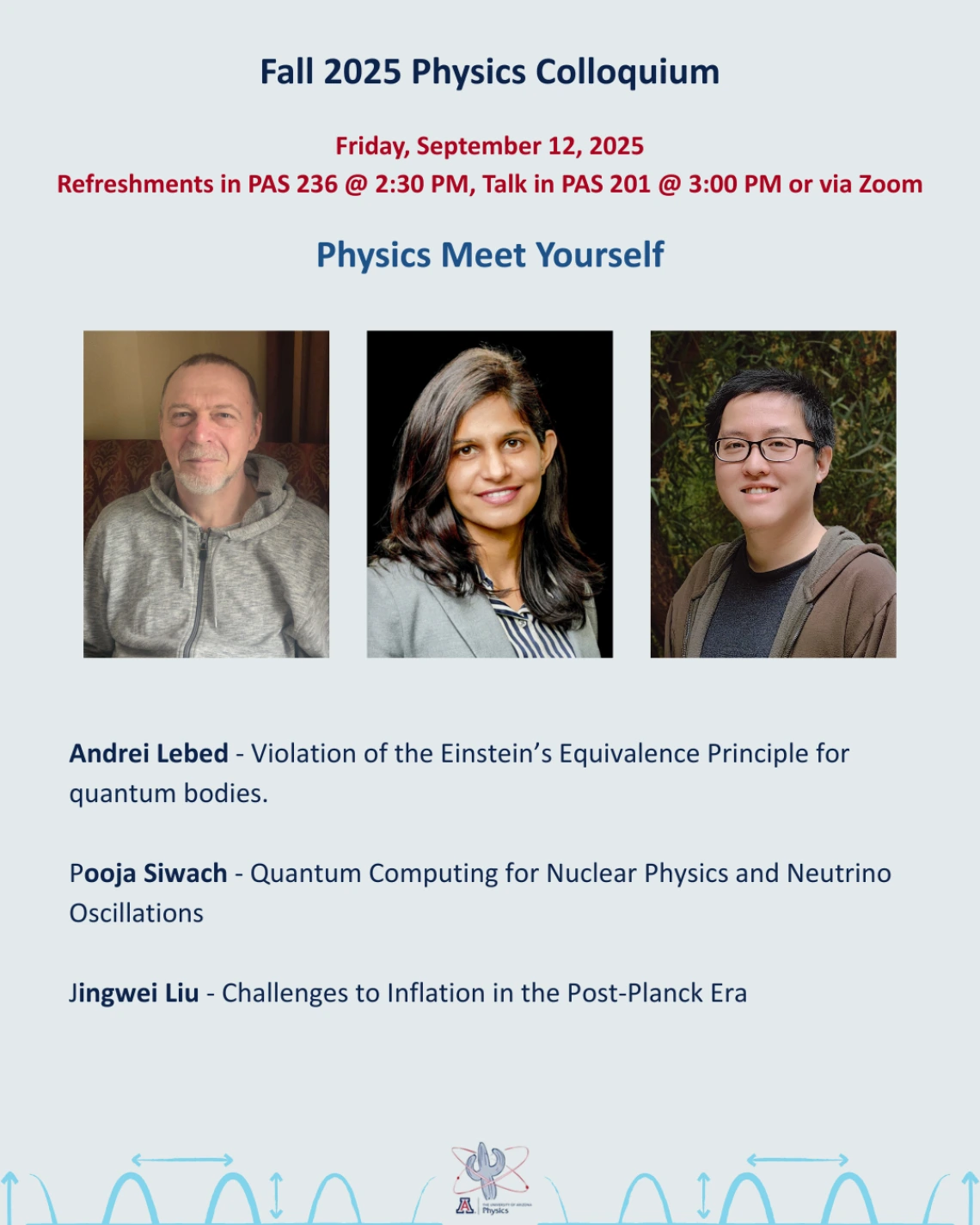Speakers: Faculty

When
Where
Andrei Lebed
Violation of the Einstein’s Equivalence Principle for quantum bodies.
Abstract: The Equivalence Principle was introduced in physics by Galileo Galilei and was applied to gravitational theory by Isaak Newton. In its simplest variant it means that inertial mass of any body is equal to its gravitational mass: mi = mg. Later, the principle was used by Albert Einstein to develop his gravitational theory – general relativity and still has considered as one of the most precise and important physical laws. Indeed, recent space experiment “Microscope” has established relative accuracy of the above mentioned equality higher than 10-17.
We pay attention that all bodies have quantum nature and find that, although the most macroscopic quantum bodies satisfy the Equivalence Principle, there are special coherent macroscopic quantum ensembles that strongly violate the principle. We discuss possible experiments at the Earth laboratories to detect these violations.
Pooja Siwach
Quantum Computing for Nuclear Physics and Neutrino Oscillations
Abstract: Quantum computers promise to tackle problems that are intractable on classical machines, making them a powerful tool for exploring the complex quantum systems found in nuclear physics. In this talk, I will present how quantum computing can advance our understanding of two frontiers: the structure of atomic nuclei and the collective behavior of neutrinos in extreme astrophysical environments. I will outline new approaches for mapping nuclear many-body problems onto quantum devices and describe how simulations of neutrino flavor evolution can shed light on processes in supernovae and the early universe.
Jingwei Liu
Challenges to Inflation in the Post-Planck Era
Abstract: Space-based missions studying the cosmic microwave background (CMB) have progressively refined the parameter space in models of inflation occurring shortly after the Big Bang. Many inflationary scenarios proposed within the context of general relativity have since been ruled out. But will the basic idea of inflation still hold?
In this talk, we will discuss several unresolved conundrums. In the new slow-roll inflationary picture, inflation arising from plateau-like potentials requires an initiation beyond the Planck time. Our analysis indicates that, while inflation was originally invoked to solve the horizon problem, this delayed initiation time occurs too far after the Big Bang for inflation to actually resolve it. Moreover, with such a delayed onset, the initial conditions for inflation remain unspecified, raising the deeper question of whether inflation is even necessary to address the horizon problem. A further difficulty arises from the lack of a consistent mechanism for quantizing primordial fluctuations within this framework.
The preservation of inflation may require an entirely new cosmological framework. Or inflation may turn out to be unnecessary, and the challenges it now faces may ultimately be telling us that it simply never happened.
3:00 PM in PAS 201 / Zoom Meeting
Refreshments in PAS 236, 2:30PM



